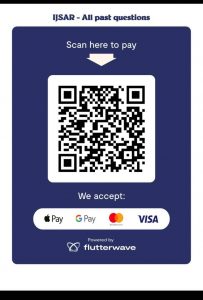TRCN Past Questions and Answers | PDF Download (Updated Edition)
TRCN Past Questions and Answers: Are you preparing for the Teachers Registration Council of Nigeria (TRCN) examination? This guide will help you achieve success! Learn how to download the TRCN Past Questions and Answers PDF, a valuable resource for your preparation. We’ll cover the exam format, including question types and subjects, and provide free sample questions to boost your confidence. The updated 2025 edition of the TRCN Past Questions and Answers PDF has helped thousands of teachers in Nigeria pass the exam with real questions from previous years. Don’t miss this opportunity—take the right steps today and join the ranks of successful candidates!
About TRCN (Teachers Registration Council of Nigeria)
The Teachers Registration Council of Nigeria (TRCN) is a government agency under the Federal Ministry of Education. Its main responsibility is to regulate, register, and license qualified teachers in Nigeria. To become a certified teacher, you must pass the TRCN Professional Qualifying Examination (PQE), which assesses your teaching knowledge, ethics, and professionalism.
TRCN Exam Format and Structure
The TRCN examination is a computer-based test (CBT) consisting of multiple-choice questions. The questions are categorized into four main sections.
| Category | Subject Area |
|---|---|
| Category A | Education courses graduates (NCE, B.Ed, M.Ed, PhD) |
| Category B | Non-Education graduates (with PGDE or equivalent) |
Below is the general structure of the TRCN exam:
| Section | Content |
|---|---|
| Educational Foundations | Philosophy, Psychology, Sociology of Education |
| Curriculum Studies | Curriculum development, methods, and evaluation |
| Educational Management | Leadership, Administration, and Planning |
| Measurement and Evaluation | Test construction, assessment, and record-keeping |
| Teaching Profession / Ethics | Code of Conduct, Teacher’s Rights and Duties |
How to Purchase The Complete Past Question Paper
